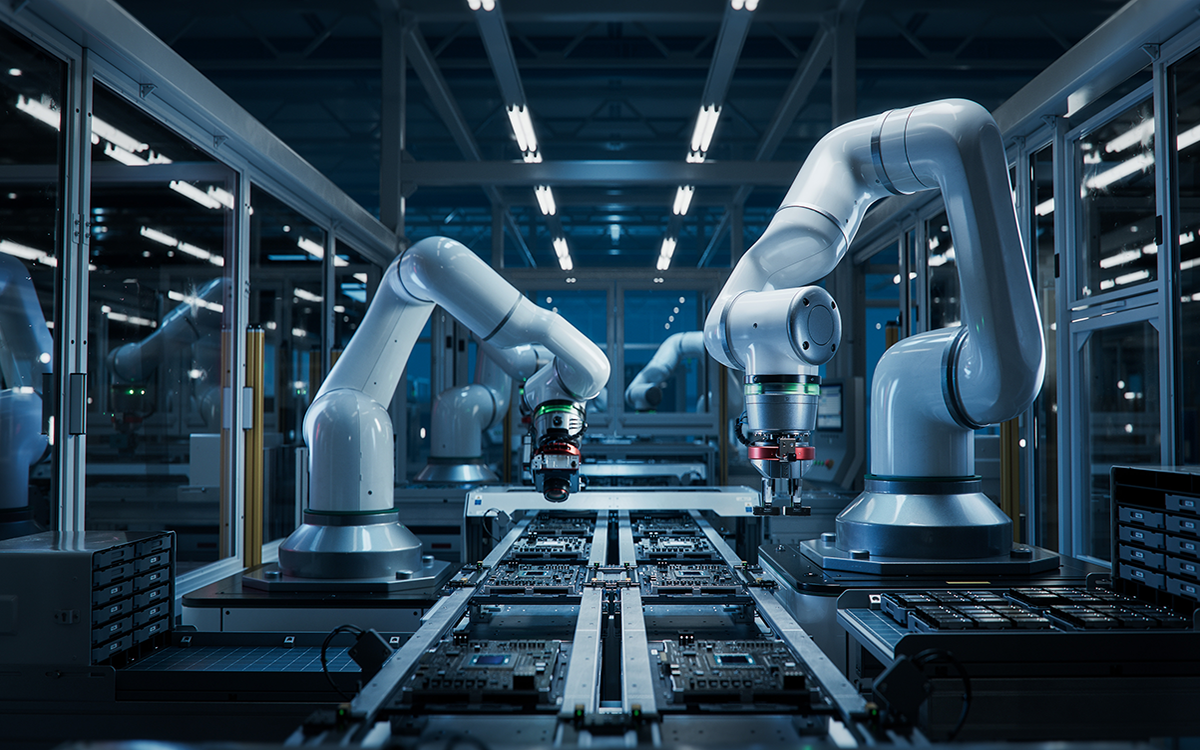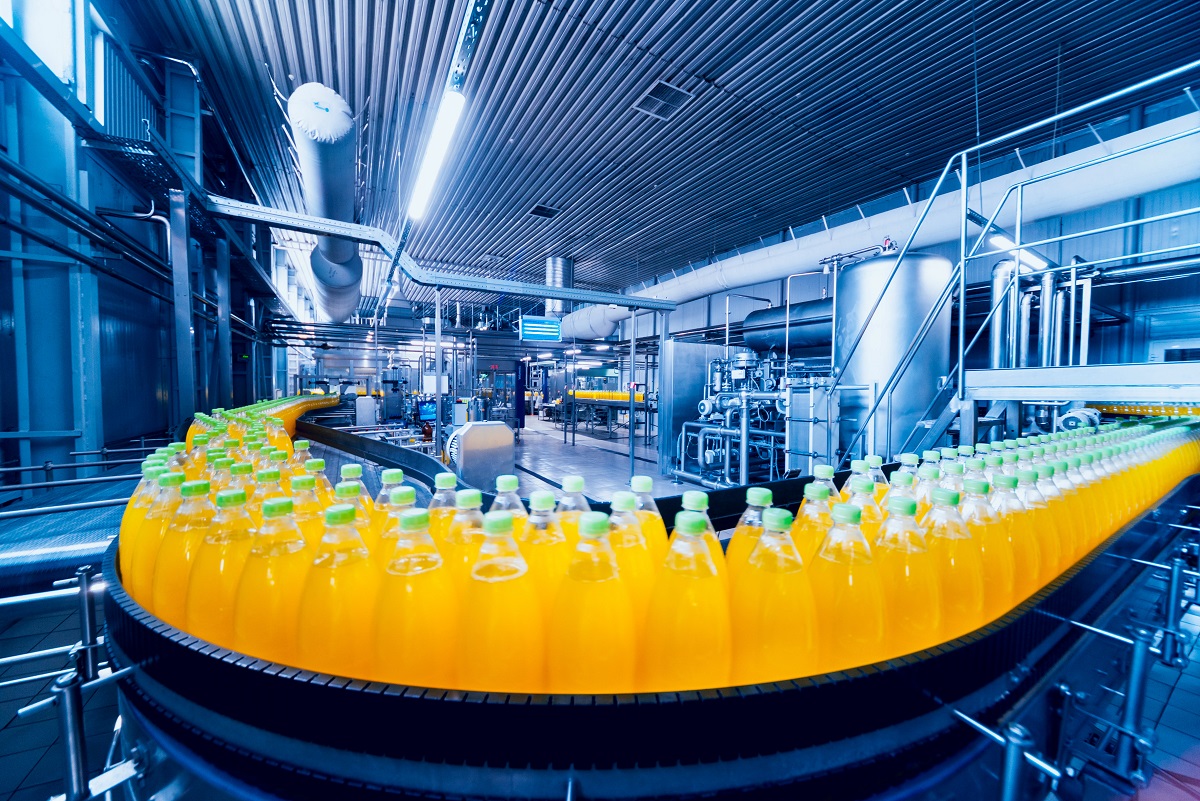How is the manufacturing industry transforming to be more sustainable?
Fujitsu / July 11, 2023
Very few industries are under as much pressure to adopt more environmentally sustainable methods of working than manufacturing. That’s because the industry’s processes have the potential to be highly polluting, with significant quantities of waste and emissions produced along the way.
Naturally, this needs to change, and the latest innovations aim to accomplish this. As well as supporting cleaner, more efficient ways of manufacturing, they’re also helping to reduce supply chain inconsistency, meet the changing needs of customers, change business models, and tackle social and environmental responsibility.
So, what are these innovations, and how exactly are they helping? In this blog, we’ll take a look at some revolutionary changes to manufacturing, and what they mean for the future of the industry.
The strength of transparency
A more open, traceable supply chain is critically important to modern manufacturing for a variety of reasons. As well as being crucial to meeting increasingly strict regulatory requirements, it’s also massively valuable to consumers too, as it allows them to make informed decisions around purchases.
A traceable supply chain gives businesses a complete picture of the processes used along the way, which helps identify environmentally damaging practices, as well as ethical issues, from raw material supply all the way to delivery. Better traceability makes identifying areas of concern easier and allows for steps to be taken to overcome them.
Traceability also leads to vast improvements in transparency. The idea is, if you can share what you have uncovered with wider society, it allows consumers, not to mention other manufacturers, to see where their products have come from. It can also contribute to a circular economy, as every component can be tracked and verified, so any claims of product circularity can be thoroughly backed up by fact.
While technologies like blockchain can help with making transparency a reality, by tracking every component at every stage of its life, and making use of unique tracking codes and secure systems, the key to success with transparency is the business itself. You have to believe it to be a worthwhile exercise and commit to it. The tools exist to make transparency successful for your business, and you can use it as the basis for showing customers where their product came from, highlighting all the climate and human-positive steps taken along the way, winning trust, and building relationships.
Automation made simple
Once you’ve enhanced the visibility and accountability of your supply chains, the next step is to start to become more efficient and automated as a business, so you can react quickly to changing trends and demands.
An effective holistic approach is key to this future. By creating closed-loop processes, organizations can take steps to connect siloed data and ensure that all systems talk to each other. In real terms, this means sharing real-time information with the entire value chain, because working together is the only effective way of creating true circularity.
Catena-X is a pioneer in this field. It is aiming to provide a collaborative, open data ecosystem to the automotive industry across the globe. This makes data significantly easier to share, increasing efficiency and control for organizations. What’s more, whoever makes data available retains control and decides individually who is involved in the data exchange and who can access the information.
This approach to data sharing will then allow for more automated systems, removing the need for labor-intensive or slow tasks and creating a more efficient, fast-moving, less wasteful future for manufacturing as a whole.
But there’s more to Industry 4.0 than just data. Digital twin technology can also play a critical role in lowering costs and boosting efficiency for manufacturers. By creating a ‘twin’ of a production line robot, it’s possible to share it among different departments, or even different companies. Effectively, creating a simulation of machinery where you can control all variables virtually to see the difference in output. The result is massively reduced costs, as businesses can share the price of expensive machinery, not to mention reducing the number of machines needing to be built in the first place.
Fujitsu’s closed-loop engineering, manufacturing, and planning solutions help to create a more connected, sustainable future for manufacturing. By connecting different systems such as ERP, SCM, MES, and Supply Chain Planning, updates in one area can be automatically reflected in others, leading to a more streamlined and efficient process.
Effective demand planning
In a world where supply chain challenges and consumer expectations are getting harder to predict, effective demand planning is an essential tool. Whether it’s identifying trends in when a product is more sought after, or using weather tracking to maximize energy usage when solar panels are producing the most energy, demand planning is key to smarter business practices. As well as helping to improve finances, demand planning can help to reduce waste, lower response times to changes in consumer patterns, and predict supply chain issues.
With the majority of high-level decision-making in the hands of the C-Suite, they have the power to implement tools that will make choosing the best course of action simple. AI is the well-known choice for identifying trends and simplifying decisions, but it’s far from the only option.
The key to more effective demand planning is quantum-inspired computing. This technology offers a significant advantage for large manufacturing organizations that deal with multiple data streams, as custom algorithms can be built to reflect a challenge and plan within minutes, rather than weeks. This drastically accelerates response times and allows organizations to see every angle before they make a decision.
Digital twin technology is already helping with demand planning too. By collecting information on the locations of delivery trucks, as well as traffic trends and journey times, it is possible to update and improve logistics planning in real time, improving route efficiency and reducing waiting times at loading bays.
Supporting better manufacturing for all
The next generation of manufacturing is upon us, which means it’s time for manufacturers to become more resilient and responsive to change, or they risk falling behind the curve. What’s more, if they’re to thrive in an ever-advancing Industry 4.0, they need to take steps to limit environmental impact and support everyone working with them, in order to meet exacting ethical standards now expected by consumers.
Naturally, technology plays a crucial role in sustainability transformation. Fujitsu Uvance is committed to offering the support manufacturers need to make the most of the opportunity they face.
By partnering with Fujitsu Uvance, you can make the most of your Sustainable Manufacturing opportunity, while enabling a circular economy. Every one of our innovative solutions is custom selected to help you respond to your individual challenges, such as speeding up transformation or reducing environmental impact.
To find out more, be sure to read our Sustainable Manufacturing eBook
Explore manufacturing insights that benefit people and the planet
Sustainable Manufacturing
Fujitsu introduced a key focus area called ‘Sustainable Manufacturing’ as a part of its business brand, Fujitsu Uvance.
We support sustainable growth and the coexistence of nature and humankind through innovation in manufacturing, industry, and across the supply chain.

Editor's Picks













